VietnamPlus Electronic Newspaper respectfully introduces the article " Vietnam's digital transformation: Results in the 2020-2024 period, opportunities and challenges ahead, the role of the press in contributing to minimizing risks and promoting the national digital transformation process " by Dr. Vu Hai Quang, Deputy General Director of Voice of Vietnam .
Prime Minister Pham Minh Chinh, speaking at the National Digital Transformation Day event on October 10, 2022, emphasized the viewpoint of "taking people and businesses as the center" of the digital transformation process.
Starting platform for National Digital Transformation Day
October 10th of every year has been chosen by the Prime Minister as National Digital Transformation Day from 2022. This annual event is an opportunity to raise public awareness of the role and benefits of digital transformation, while promoting the synchronous participation of the entire political system, businesses and people. Having a National Digital Transformation Day creates a unified highlight, helps periodically evaluate results and maintain commitment to action nationwide.
In addition, the foundation for Vietnam's digital transformation was laid by Decision 749/QD-TTg dated June 3, 2020, approving the National Digital Transformation Program to 2025, with a vision to 2030.
This program identifies three synchronous pillars: Digital Government, Digital Economy, Digital Society, with the dual goal of both socio-economic development and improving the effectiveness of state management. The strong commitment from the head of the Government has created a solid policy framework for implementing digital transformation on a large scale and in the long term.
Vietnam's digital transformation achievements in the 2020-2024 period have achieved many impressive results on all three main pillars, contributing to positive changes in socio-economic life.
Here is an overview of the notable achievements:
Digital government - online public services for people: The focus in recent times has been to move online public services to end-to-end status, allowing people to complete procedures entirely online. The target for 2030 is for 70% of adults to use online public services. The initial reality is very positive: some online public services have had a remote usage rate of up to 95%. This shows that if the service is designed to be convenient, people are willing to switch from direct to online transactions, saving both time and costs.
The success of digital government is measured by the level of satisfaction and convenience brought to citizens rather than the number of service portals built. Internationally, Vietnam's E-Government Development Index (EGDI) in 2024 ranked 72/193 countries.
This ranking helps Vietnam continue to lead the group of developing countries in the region (compared to Cambodia at 120, Myanmar at 138, Laos at 152), but to break into the advanced group, we need to improve the quality of online services (Online Service Index - OSI) which is currently a bottleneck, while our telecommunications infrastructure is already very strong and human resources (Human Capital Index - HCI) have also improved significantly (from 0.6903 in 2022 to 0.7267 in 2024).

Digital economy - a new growth driver: The digital economy is becoming an important driver for Vietnam's growth. Currently, this sector contributes about 17% of the country's GDP, with a growth rate 3 times higher than the general GDP growth rate. This boom affirms that digital transformation is not just an administrative cost, but an effective investment that brings productivity and economic value.
In order to exploit the full potential, the National Committee on Digital Transformation has prioritized the popularization of digital infrastructure and the promotion of digital application innovation in 2024, creating new momentum for increasing labor productivity. The digital technology business ecosystem in Vietnam is thriving with about 76,000 enterprises (2023). The upcoming goal is to form global-scale technology enterprises. The core is to transform the growth model from digitizing simple processes to applying advanced technologies (AI, IoT...) to optimize production and supply chains - thereby promoting exponential growth instead of linear.

Digital society - Vietnam has risen to the top in terms of telecommunications infrastructure and digital infrastructure compared to many countries with the same income level. By 2024, 4G coverage will reach 99.8% of the population; fiber optic cable (FTTH) will reach nearly 80% of households (compared to the world average of about 60%). The rate of people using smartphones is over 84% (target to reach 100% by the end of 2024), much higher than the global average of 63%.
Notably, data costs in Vietnam are among the lowest (only about half the world average), creating opportunities for all classes of people to access the Internet.
Along with infrastructure, Vietnam is also a pioneer in deploying new generation Internet technology: our IPv6 address usage rate ranks 2nd in ASEAN and 9th in the world, even above technology powerhouses such as the US and China. This achievement expands the space for the Internet of Things (IoT) and digital applications requiring large bandwidth, creating favorable conditions for the development of data economy and smart cities in the future.
Great opportunities in the digital age
Entering the next phase, Vietnam faces many strategic opportunities to break through and take advantage of new technology and industry trends.
Notable opportunities include:
- Artificial Intelligence (AI) and Cyber Security: AI is considered a golden opportunity to increase productivity and create smart services in all fields. If the development and application of AI is linked to the goal of solving major socio-economic problems, AI will become a new growth driver for the country. Along with that, cyber security today is not only a defense cost but also a potential land for service business.
In the context of increasing cyber threats, investment in cybersecurity is seen as a national asset and can even develop into an export industry of Vietnam. The transformation from a technology consumer to a technology creator, especially in the field of AI and cybersecurity, will determine the country's ability to be technologically self-sufficient in the near future.
- Blockchain and Web3: Vietnam is emerging as one of the most vibrant digital asset markets in the world. According to a report, by the end of 2024, Vietnamese people will hold about 17 million cryptocurrency units, ranking 7th globally. This creates a very dynamic Blockchain/Web3 ecosystem in the country, paving the way for many blockchain startups.
However, to seize this opportunity sustainably, Vietnam needs to have a balanced approach: both encouraging innovation and applying distributed ledger technology (DLT) in various fields, while strengthening the management of financial risks and accompanying cybersecurity.
- Strategic high-tech industry: To ensure autonomy and enhance its position in the global value chain, Vietnam has launched strategic programs on high-tech industry.
Notably, the Government has issued a Strategy for Semiconductor Industry Development to 2030, with a vision to 2050, to build domestic semiconductor chip production capacity. If Vietnam can control a part of the semiconductor supply chain, it will have a superior competitive advantage, promoting the digital economy to exceed the current 17% of GDP and shifting from linear growth to breakthrough growth.
Along with the existing strong telecommunications and digital infrastructure, we have the opportunity to turn data into national assets. Promoting the application of big data analytics and AI will help exploit the huge data warehouse to create economic value, building an effective data economy.
Big challenges on the digital journey
Besides opportunities, Vietnam is also facing core challenges that can hinder the digital transformation process if not resolved promptly:
- Lack of high-tech human resources: The demand for high-quality digital human resources is far exceeding the current supply. Although the overall quality of human resources (according to the HCI Index) in Vietnam has improved significantly, we still have a serious shortage of technology experts in key areas. Areas such as cybersecurity, AI, cloud computing, big data, machine learning, and deep learning are all in dire need of talent. This shortage has become a "bottleneck" that prevents us from taking full advantage of opportunities from new technology industries (e.g., semiconductors, AI).
Based on previous data from the Ministry of Information and Communications and survey results from Associations and Enterprises, it is shown that by 2025, Vietnam may lack 150,000-200,000 IT human resources each year in important areas such as AI, data, programming and cybersecurity.
Currently, although the country has about 1.5 million IT workers, only 1/3 of them are properly trained. If this gap is not filled soon, Vietnam risks remaining only as a technology consumption and processing market, making it difficult to realize its aspiration of becoming a technology manufacturing country in line with the national digital transformation program.
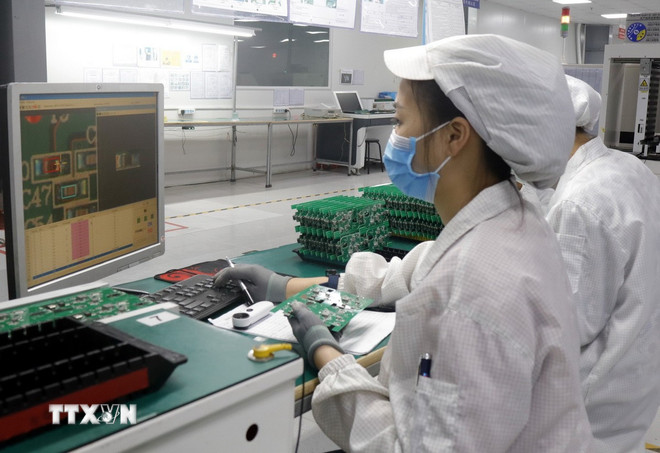
- Risk of information security and network security: The success of digital society will not be meaningful without information security and safety. Currently, almost 99% of the population has 4G coverage and 84% of smartphone users, so the risk of cyber attacks and information warfare also increases proportionally. In particular, rural, remote and isolated areas are becoming weak points in terms of network security due to limited public awareness.
Although the Internet infrastructure has reached the villages, many people in remote areas still lack basic security skills, making them vulnerable to online fraud and malware penetration. This reality leads to the risk of personal and financial information leakage and erodes people's trust in digital services. Without a timely "national cybersecurity" strategy, these gaps can slow down or even reverse the achievements of digital transformation.
- Institutions and policies have not kept up with innovation: The rapid development of digital technology poses a big problem for the legal and policy framework. If the law is not updated promptly, it can unintentionally hinder continued innovation, or create dangerous management gaps (for example, the legal framework for AI, digital currency, and personal data is still incomplete).
In addition, in the field of digital government, the challenge lies not only in building technical services, but also in ensuring that the services are used by people in a practical, effective and safe manner. This requires policies to promote data sharing between ministries and localities, and to break the current "data fragmentation" situation. Only when data is interconnected and people and businesses are at the center, will online public services be truly convenient and attractive, thereby making people actively use them.
Solutions to promote digital transformation
To overcome challenges and take advantage of opportunities, Vietnam needs to synchronously deploy many creative and drastic solutions:
- Rebuilding a user-centric digital government: Shifting from a “digital” mindset to designing services around users. It is necessary to simplify processes and improve the experience for people and businesses when using online public services. At the same time, promote connectivity and data sharing between central and local agencies. This is the key to achieving the goal of 70% of people using online public services and significantly improving Vietnam's Online Services Index (OSI) on the international rankings.
- Investing in developing high-tech human resources: Solving the human resource problem must be a top priority. It is necessary to build national-scale training programs with public-private partnerships, along with preferential policies to attract technology talents from abroad to the country. The focus is on key areas such as AI, semiconductors, and cybersecurity, thereby creating a source of core experts capable of mastering and creating technology. This is a long-term strategy for Vietnam to have a strong team of "digital talents" (to be the national spirit in the digital age), ensuring autonomy and sustainability for the national digital transformation journey.
- Promoting universal cybersecurity : Volunteers in the “Community Digital Technology Team” guide the elderly to use smartphones - an activity that brings digital skills “to every corner, knocking on every door." Include information security content in all digital skills dissemination programs for people, considering this a mandatory factor in digital transformation. There should be regular campaigns to raise cybersecurity awareness down to the commune and ward levels.
Local training programs, workshops, or the “going to every alley, knocking on every door” model of the Community Digital Technology Team should be replicated to help people in remote areas master the knowledge of preventing online risks. Only when cyber security is ensured can public trust in digital government and digital services be maintained.
- Perfecting flexible mechanisms and policies: Research and apply testing mechanisms (sandboxes) that allow controlled testing of new technologies such as AI, Blockchain, and Web3. This helps businesses to freely innovate within the allowed framework, taking advantage of technological opportunities without violating the law.
At the same time, the Government needs to continuously update policies in line with digital trends, from laws on electronic transactions, data laws to user protection in cyberspace. Flexible institutions will create a favorable environment for digital transformation to accelerate while minimizing risks to society.
- Promoting the role of press and media: Press is a bridge to bring digital knowledge closer to the people, creating consensus and widespread support for digital transformation. Media agencies need to continue to be creative in promoting and popularizing digital transformation with easy-to-understand language and relevant content. In fact, many major newspapers have actively participated: for example, VietNamNet has opened a separate page on National Digital Transformation Day, vividly reflecting digital transformation efforts at all levels and sectors across the country.
On the occasion of October 10 every year, the press and media must promote news articles, reports, and stories about digital transformation, from typical successful technology startups to guiding people in using digital services. The strong participation of the press will ignite the spirit of innovation, spread good experiences and call on every citizen to participate in the National Digital Transformation.

Digital transformation is not a destination but a continuous journey that requires perseverance and constant adaptability. After nearly 5 years, Vietnam has built a fairly solid foundation: digital economy accounts for about 17% of GDP, digital society with 84% of people using smartphones, IPv6 application rate ranks 9th in the world...
However, the road ahead to becoming a digital nation by 2030 still has a lot of work to do. We can only reach the finish line successfully if we quickly overcome strategic bottlenecks in high-tech human resources and strengthen the national cybersecurity system.
Golden opportunities such as AI and semiconductors are opening up before our eyes, but to grasp them, political determination alone is not enough. We need to turn that determination into breakthrough investments and mechanisms and policies must always be innovated in practice.
The journey of digital transformation is the story of the entire people. With the unanimous participation of the Government, businesses, people and the support of the press and media, Vietnam can confidently move forward, so that no one is left behind in this era./.
Source: https://www.vietnamplus.vn/bao-chi-gop-phan-giam-thieu-rui-ro-va-thuc-day-tien-trinh-chuyen-doi-so-quoc-gia-post1068298.vnp







![[Photo] Opening of the 13th Conference of the 13th Party Central Committee](https://vphoto.vietnam.vn/thumb/1200x675/vietnam/resource/IMAGE/2025/10/6/d4b269e6c4b64696af775925cb608560)



























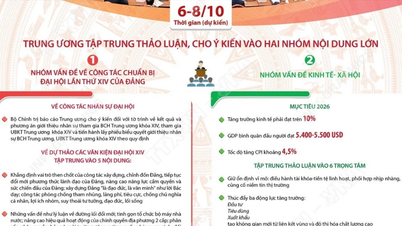
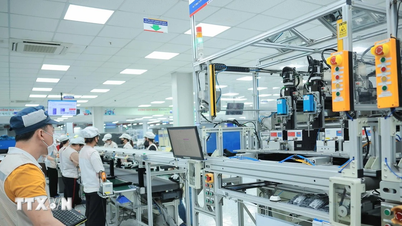
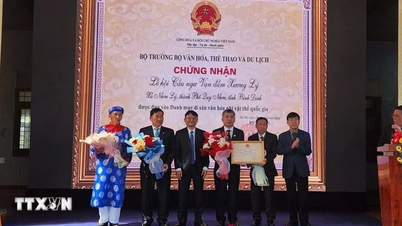































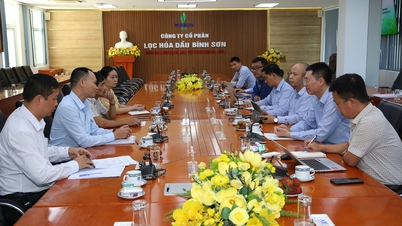











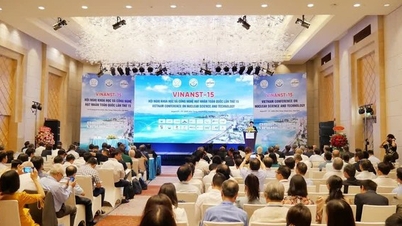























Comment (0)